SPUSD In Focus: TK-5 Social-Emotional Learning
SPUSD Elementary School Teachers, Counselors, and Principals Weave Lessons Throughout Students’ Daily Experiences; This is part one of a two-part series on social-emotional learning. Part one focuses on elementary programs; part two will focus on secondary programs.
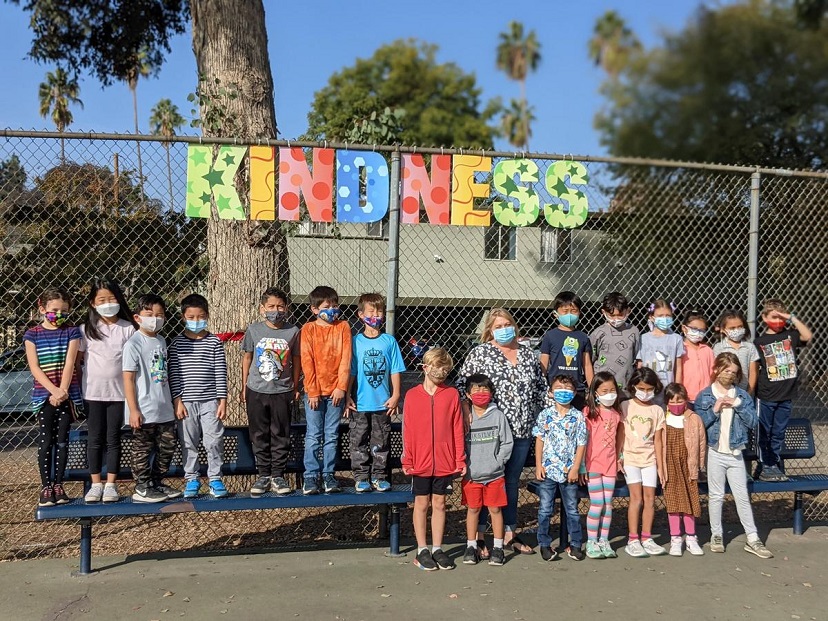
The Committee for Children defines social-emotional learning (SEL) as the process of developing self-awareness, self-control, and interpersonal skills that are vital for school, work, and life success. SEL has been a part of the traditional school environment for decades and research shows that it helps improve kids’ academic performance, curtails bullying, reduces dropout rates, and builds character. In the past several years, South Pasadena Unified School District (SPUSD) has committed substantial resources to evaluate and modify existing academic intervention programs and social-emotional support services to meet individual and collective student needs. In fact, since 2019, improvements in SEL for students have been specifically noted within the SPUSD Strategic Plan.
In the past two years, SPUSD has ramped up social-emotional learning programs and services to help students as they have returned to a traditional school environment after at-home learning during the pandemic. Elementary-aged children have shown that they need additional assistance with playground issues and daily social interactions. Providing common language for how to discuss emotions and feelings, along with other specially targeted programs and lessons, help kids successfully manage challenges present in everyday life. Developing positive character traits helps students focus, make good decisions, and become supportive members of their community. SPUSD has hired teachers on special assignment (TOSAs), offers increased counseling support and provides new types of programming and curriculum based on student needs.
At the elementary schools, there are three tiers of behavioral support and social-emotional learning offered to students. The first, and broadest tier is universal and preventative in nature, meaning that the instruction is provided to all students through various teacher-led lessons and activities. Services such as Positive Behavior Intervention and Support, Second Step, digital citizenship, mindfulness practices, and brain breaks are all Tier 1 activities that are interwoven throughout a student’s day at school. The elementary school TOSAs work in tandem with grade-level teachers, counselors, and school principals to deliver lessons in creative ways.
For more than 20 years, SPUSD elementary teachers have relied on one main program—the Second Step curriculum—a series of lessons that teach skills for resolving conflicts, working with others, forming healthy relationships, and making good decisions. Focusing on one lesson each week, teachers offer directed instruction to students and, depending on the age of the students, adjust the discussion accordingly.
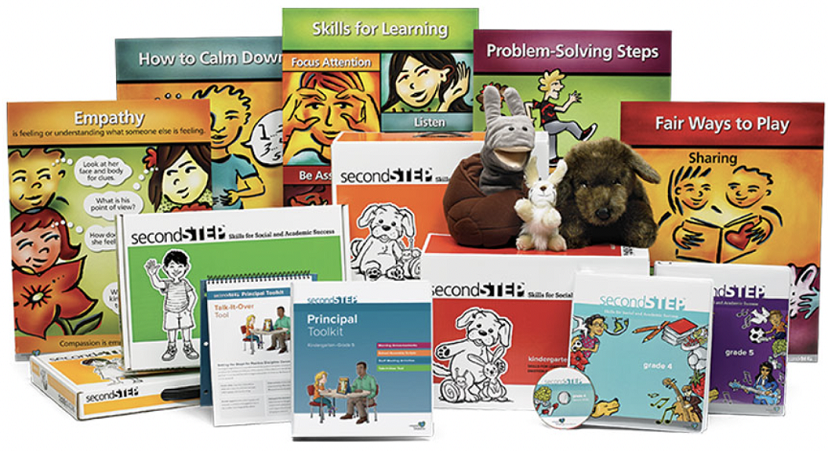
“Students in grades four and five are introduced to a concept, watch a video lesson that poses a problem, then discuss the various outcomes,” said Marengo Behavioral and Academic Support TOSA Noelle Fong. “Younger students discuss the same concept but may instead look closely at a poster illustrating body language related to the concept, and then participate in a ‘turn and talk’ with their classmates. Students in preschool, transitional kindergarten and kindergarten also respond positively to lively puppets that act out various scenarios.”
Concepts such as empathy, cooperation, and problem solving are introduced to all grade levels so that everyone is speaking the same language. Principals reinforce the concepts in morning announcements, assemblies and staff meetings. Critical to the success of the program is enveloping all students with similar language and experiences. The Second Step program is designed to help teach skills that create a safer, more respectful learning environment that promotes school success for all.
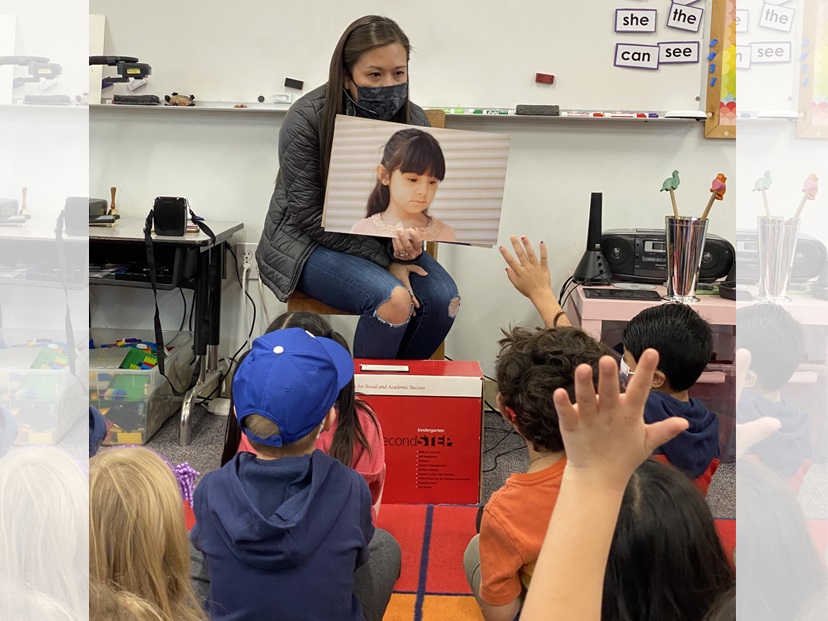
“We are committed to consistency at all the elementary schools,” said Monterey Hills Behavioral and Academic Support TOSA Bryant Lopez. “Eventually most of our students come together for middle school and high school. By laying the foundation now and teaching similar positive character traits at each school, our students will be familiar with the language and behavioral skills expected at the next level.”
Another example of a Tier 1 approach at the elementary level is Positive Behavior Intervention and Support (PBIS)—a system that is designed to emphasize and teach kids what they should be doing at school and offering recognition for positive actions. Monterey Hills Behavior and Academic Support TOSA Bryant Lopez has introduced a program called Super 7 Certificates where students are “caught” doing the right thing. At Arroyo Vista, Behavior and Academic Support TOSA Timaree Hayes created AV High Fives, a system designed to acknowledge students who are exhibiting desirable behaviors such as being kind, safe, cooperative or respectful.
“A student who demonstrates a positive quality is recognized during the school day with a printed high five award,” said Hayes. “At the end of the day, the teachers send the high fives home to parents who then ask their child about the experience, sign the award, and return it to school where it is added to a large, public display of positive characteristics.”
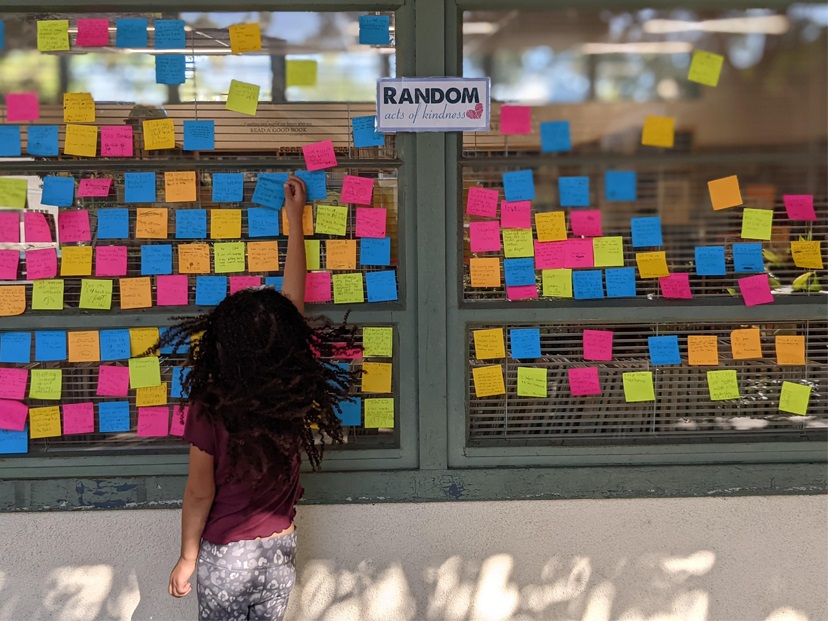
Each elementary school also has a counselor on-site to support students in various areas including, but not limited to, social-emotional learning. Marengo’s counselor Kathryn Hutto, Monterey Hill’s counselor Marina Thompson, and Arroyo Vista’s counselor Joyce Ku-Rodriguez approach each day with the ultimate goal of creating an environment where students feel safe, known and seen. Counselors work with students one on one, in groups and with parents to reinforce concepts at home.
“The school counselors work together with the Behavioral and Academic Support TOSAs to provide a team of adults that consistently model positive social-emotional learning lessons and co-teach the skills with the academic teachers,” said Monterey Hills Principal Dr. Laurie Narro. “During recess at the elementary schools, students are grouped by grade level and by classroom so if there is an issue, our teams are able to quickly identify who is involved and proactively work together on restorative practices. We have used tools such as Community Circles to resolve playground behavior issues, and teachers engage with students in lessons like Words Matter.”
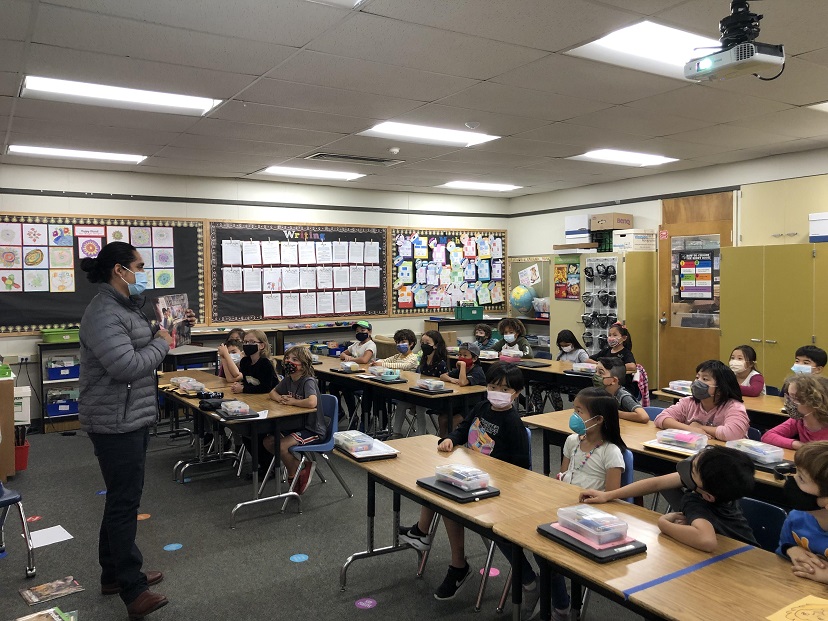
This year at Arroyo Vista, approximately half of the teachers are piloting an approach called the “Responsive Classroom,” which is a student-centered framework and philosophy around how you teach that addresses social-emotional concerns. A responsive classroom consists of a set of research, and evidence-based practices designed to create safe, joyful, and engaging school communities for both students and teachers. In a responsive classroom, children learn how to respect each other and work together as they learn. Once the pilot program is complete, additional teachers may opt to apply this approach in their classrooms.
Occasionally, more serious, repetitive student behaviors or more in-depth teaching of skills to a certain group necessitates additional, targeted intervention strategies. This year, educators have noted that many students are coming to school with varied levels of comfort, knowledge and experience in social situations, and the skills are different from school to school. For students who are not demonstrating the intended results of Tier 1 measures, teachers and counselors implement Tier 2 systems of support such as Student Success Team meetings (SSTs), small group counseling, explicit skills instruction, and positive behavior contracts. Again, the trio of teachers, counselors and principals work together to determine which students need the support and which type of intervention strategy will be most effective. Both TOSAs and school counselors attend SST meetings offering specific examples for improvement and a full staff of professionals who are able to dig deeper to help problem solve. Tier 2 strategies often include parents and individualized interventions.
“The Tier 2 support system is based on the direct needs of the students. The team is using new tools which include lessons about Zones of Regulation, and Stand Up, Speak Out, which addresses friendship skills,” said Arroyo Vista Principal Kim Sinclair. “A group of girls needed to develop the building blocks of friendship skills, primarily because they have not been around each other, navigating their emotions, for the past two years, and the Stand Up, Speak Out curriculum helped improve their interactions with one another. In addition, we established small groups of students and delivered targeted lessons based on various trends we see on the playground and in the classroom.”
If there is a need and further actions indicate that Tier 2 interventions are not providing the desired outcomes, school counselors and TOSAs may recommend Tier 3 intensive, individualized intervention and support. An additional Student SuccessTeam (SST) meeting is held and a specific behavioral intervention plan will be developed and implemented. Special education support staff will assist the school counselors and emergency response teams may be engaged, if needed.
Currently, the SEL support team is working on developing a system for recognizing specific social-emotional needs in order to better target student lessons and services. The team is reviewing options for universal screeners that would quickly and easily identify student needs and allow faster turnaround for implementation of prevention strategies including pre-referral interventions rather than solely relying on follow-up interventions.
“As our school support teams and programs evolve, we’re looking forward to growing community support and developing a common language around social-emotional learning—a language that may be used in the classroom, on the playground, and with parents,” said Marengo Principal Patricia Cheadle. “Ideally, we will have a whole community of understanding and support around the needs of our students academically and from a social-emotional perspective.”
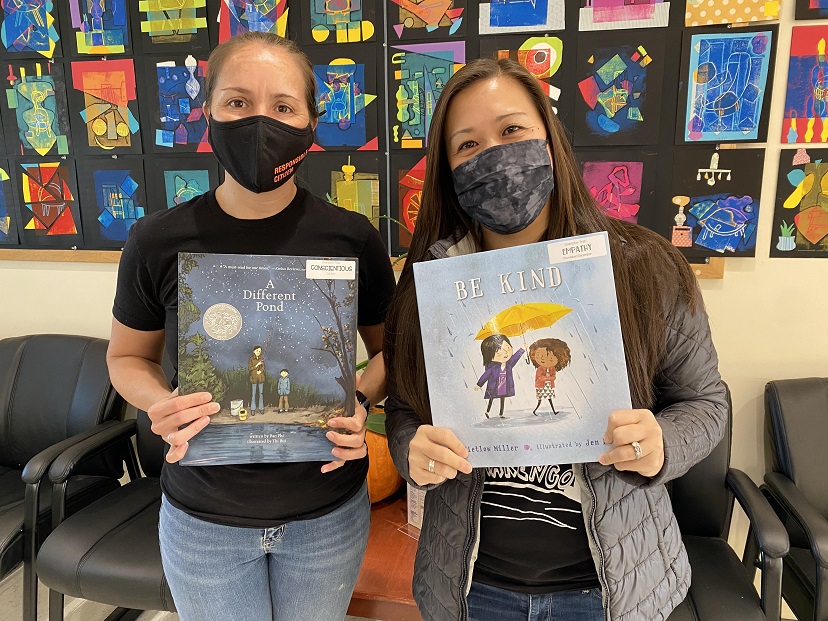
Teachers, parents, and administrators alike understand how critical it is for students to develop these skills. Through the District’s partnership with Chinatown Service Center Behavioral Health Division, training for teachers and parents is now being offered in specific topic areas, such as managing anxiety. Additional training sessions will be planned and offered throughout the school year.
SPUSD funds professional development, new curriculum, and additional staff to support SEL through supplemental funds, specifically the federal Expanded Learning Opportunities Grant. Counselors and teachers have the foresight and knowledge to build a long-term program that is continuous, comprehensive, responsive and reinforces the skills students need on a regular basis.
Longitudinal studies have shown that students with fine-tuned social-emotional skills successfully manage everyday life and become supportive members of their community. Well-implemented SEL programs have been proven to positively affect students’ success in all grade levels (additional research may be found here). The importance of students’ social-emotional learning is supported and encouraged within SPUSD from preschool through graduation with the ultimate goal of students reaching their full potential by developing intellectual abilities, emotional maturity, unique talents, curiosity, and love of learning.
About South Pasadena Unified School District
Established in 1886, the South Pasadena Unified School District (SPUSD) serves approximately 4,800 students within five schools including three elementary schools, one middle school and one comprehensive high school in South Pasadena, California. Nestled in the West San Gabriel Valley, SPUSD has earned a reputation for providing high quality public education, attracting families who value challenging academic programs and outstanding teachers. Consistently recognized for superior performance, SPUSD students earn honors at the local, state and national level. The District draws vital support from parents and community members through the South Pasadena Educational Foundation, local PTAs and booster clubs.
For more information, contact: South Pasadena Unified School District, Office of the Superintendent, scarroll@spusd.net.






